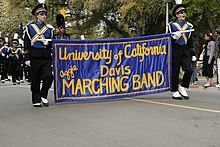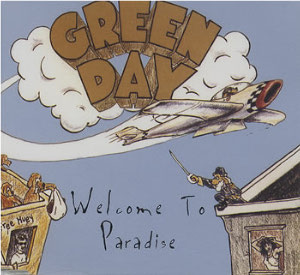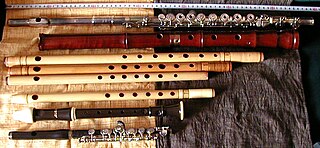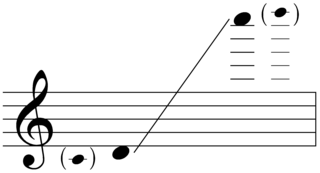
The University of California, Berkeley is a public research university in Berkeley, California. It was founded in 1868 and serves as the flagship campus of the ten campuses of the University of California. Berkeley has since grown to instruct over 40,000 students in approximately 350 undergraduate and graduate degree programs covering numerous disciplines.
The Oski Yell is the University of California Berkeley spirit yell from which Cal's mascot, Oski the Bear, derives his name. Although Oski appeared in 1941, the yell was first performed around the turn of the 20th century. The yell's origins are uncertain, although the University of Illinois originated a similar yell in 1899. Another early version is credited to Vince Wirtz, who led a similar cheer beginning in the 1920s at football games for Hamilton, Ontario teams.
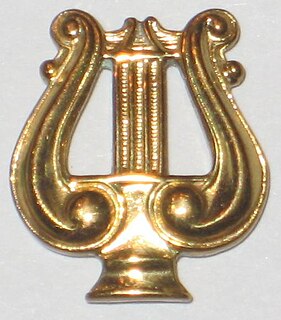
The Fightin' Texas Aggie Band is the official marching band of Texas A&M University. Composed of over 400 men and women from the school's Corps of Cadets, it is the largest military marching band in the world. The band's complex straight-line marching maneuvers are performed exclusively to traditional marches.

The University of California Marching Band, usually shortened to Cal Band, is the marching band for the University of California, Berkeley. While the Cal Band is student-run, it is administered under the auspices of the university and represents Cal at sporting events and social gatherings. The name of the band is "The University of California Band" by the constitution, but is typically called "The University of California Marching Band" or "The Cal Band". When the band marches out of Memorial Stadium's North Tunnel for football pre-games, it is referred to as "The Pacesetter of College Marching Bands, the Pride of California".
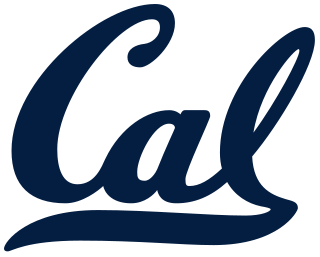
The California Golden Bears are the athletic teams that represent the University of California, Berkeley. Referred to in athletic competition as California or Cal, the university fields 30 varsity athletic programs and various club teams in the National Collegiate Athletic Association (NCAA)'s Division I primarily as a member of the Pac-12 Conference, and for a limited number of sports as a member of the Mountain Pacific Sports Federation (MPSF). Over the course of the school's history, California has won team national titles in 13 men's and 3 women's sports and 107 team titles overall. Cal athletes have also competed in the Olympics for a host of different countries. Notable facilities used by the Bears include California Memorial Stadium (football) and Haas Pavilion. Cal finished the 2010–11 athletic season with 1,219.50 points, earning third place in the Director's Cup standings, the Golden Bears' highest finish ever. Cal did not receive any points for its national championships in rugby and men's crew because those sports are not governed by the NCAA. Cal finished 12th in the 2014-15 standings.

UC Davis Health Stadium is a 10,743-seat multi-purpose stadium on the University of California, Davis campus in unincorporated Yolo County, California. It opened on April 1, 2007 and is the home to the UC Davis Aggies football and women's lacrosse teams. It replaced Toomey Field. Plans call for the stadium to eventually be built out to 30,000 seats. The field at UC Davis Health Stadium is named Jim Sochor Field, after their College Football Hall of Fame coach.
The Cal Poly Mustang Band, also known as The Pride of the Pacific, is the official marching band of California Polytechnic State University in the city of San Luis Obispo, California. Although the band is not a competitive marching band they serve as a school spirit organization. The band functions in two different forms throughout the year. In the fall the band marches as The Mustang Marching Band and during Cal Poly's winter quarter they function as a pep band. The band attends many athletic events during the year to encourage the school's athletic teams and audience support/involvement. The marching band is well-known around campus as an exciting and spirited group that brings pep, passion, and tradition to every performance. The marching band is conducted by three directors: Andrew McMahan, Christopher Woodruff, and Len Kawamoto.

The University of Wisconsin Marching Band is the marching band for the University of Wisconsin–Madison. It was formed in the fall of 1885 to support the university military battalion. Today, it has grown to about 300 members and performs at all home Badger football games.

Police departments in the University of California system are charged with providing law enforcement to each of the system's campuses.
"Sons of California" is a fight song of the University of California, Berkeley, as well as the University of California, Davis. It was composed by Clinton "Brick" Morse in 1896. Although it was originally an unpopular song among students because of its slow and solemn hymn, the Cal Band began performing a more lively version in the 1930s. From then on, "Sons of California" would remain one of the best known songs at the University.

The Davis Men's Crew Club is a collegiate sports club representing the University of California, Davis in rowing. As a non-funded team, it is a member of the Western Intercollegiate Rowing Association (WIRA), whose participants are mostly of non-Pac-10 schools on the West Coast. Nationwide, the team is one of the most successful collegiate rowing club programs in the United States, making periodic appearances in the Intercollegiate Rowing Association national championships, the Eastern College Athletic Conference and, more recently, the American Collegiate Rowing Association national championships. Notable alumni include Seth Weil, who rowed in the USA men's coxless four at the 2016 Rio Olympics and who holds two world rowing championship first place titles in the mens four; as well as Carlo Facchino who holds a place in the Guinness Book of World Records for the fastest Pacific Ocean crossing from Monterey, CA to Honolulu, Hawaii with a time of 39 days, 9 hours and 56 minutes.

The University of Cincinnati Bearcat Bands make up the university's athletic band program and are distinct and separate from the College Conservatory of Music. The Bearcat Bands serve as both an academic class and a student group as an independent department within the Division of Student Life.
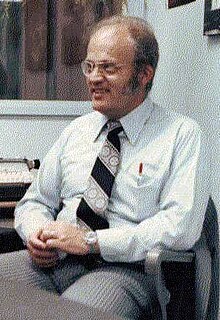
The University of California Jazz Ensembles, also known as the UC Jazz Ensembles, UC Jazz, or UCJE, is the student jazz organization founded in 1967 on the University of California, Berkeley, campus. Founded in 1967, it comprises one or more big bands, numerous jazz combos, a vocal jazz ensemble, an alumni big band, and instructional classes. With a mission statement to foster a community for the performance, study, and promotion of jazz at U.C. Berkeley, its Wednesday Night big band provides free concerts every Thursday noon on Lower Sproul Plaza, its various units perform throughout the San Francisco Bay Area including area high schools, travel to collegiate jazz festivals, and perform overseas, and for many years it sponsored the annual Pacific Coast Jazz Festival. It also provides master classes by its instructors and clinics by prominent guest artists. It has nurtured numerous musicians who have become professional jazz musicians and educators. UC Jazz Ensembles is one of three groups, with the Cal (marching) Band and UC Choral Ensembles, forming Student Musical Activities (SMA), a department within Cal Performances on the U.C. Berkeley campus. Its members are primarily U.C. Berkeley undergraduate and graduate students, representing many academic disciplines.

The UC Davis pepper-spray incident occurred on November 18, 2011, during an Occupy movement demonstration at the University of California, Davis. After asking the protesters to leave several times, university police pepper sprayed a group of student demonstrators as they were seated on a paved path in the campus quad. The video of UC Davis police officer Lt. John Pike pepper-spraying demonstrators spread around the world as a viral video and the photograph became an Internet meme. Officer Alex Lee also pepper-sprayed demonstrators at Pike's direction.
The 1958 Cal Aggies football team represented the Northern Branch of the College of Agriculture in the 1958 NCAA College Division football season. The team was known as either the Cal Aggies or California Aggies, and competed in the Far Western Conference (FWC).

The 1961 UC Davis football team represented the University of California, Davis in the 1961 NCAA College Division football season. UC Davis competed in the Far Western Conference (FWC). The UC Davis sports teams were commonly called the “Cal Aggies” from 1924 until the mid 1970s.

The 1960 UC Davis football team represented the University of California, Davis in the 1960 NCAA College Division football season. UC Davis competed in the Far Western Conference (FWC). The UC Davis sports teams were commonly called the “Cal Aggies” from 1924 until the mid 1970s.
The 1957 Cal Aggies football team represented the Northern Branch of the College of Agriculture in the 1957 NCAA College Division football season. The team was known as either the Cal Aggies or California Aggies, and competed in the Far Western Conference (FWC).
